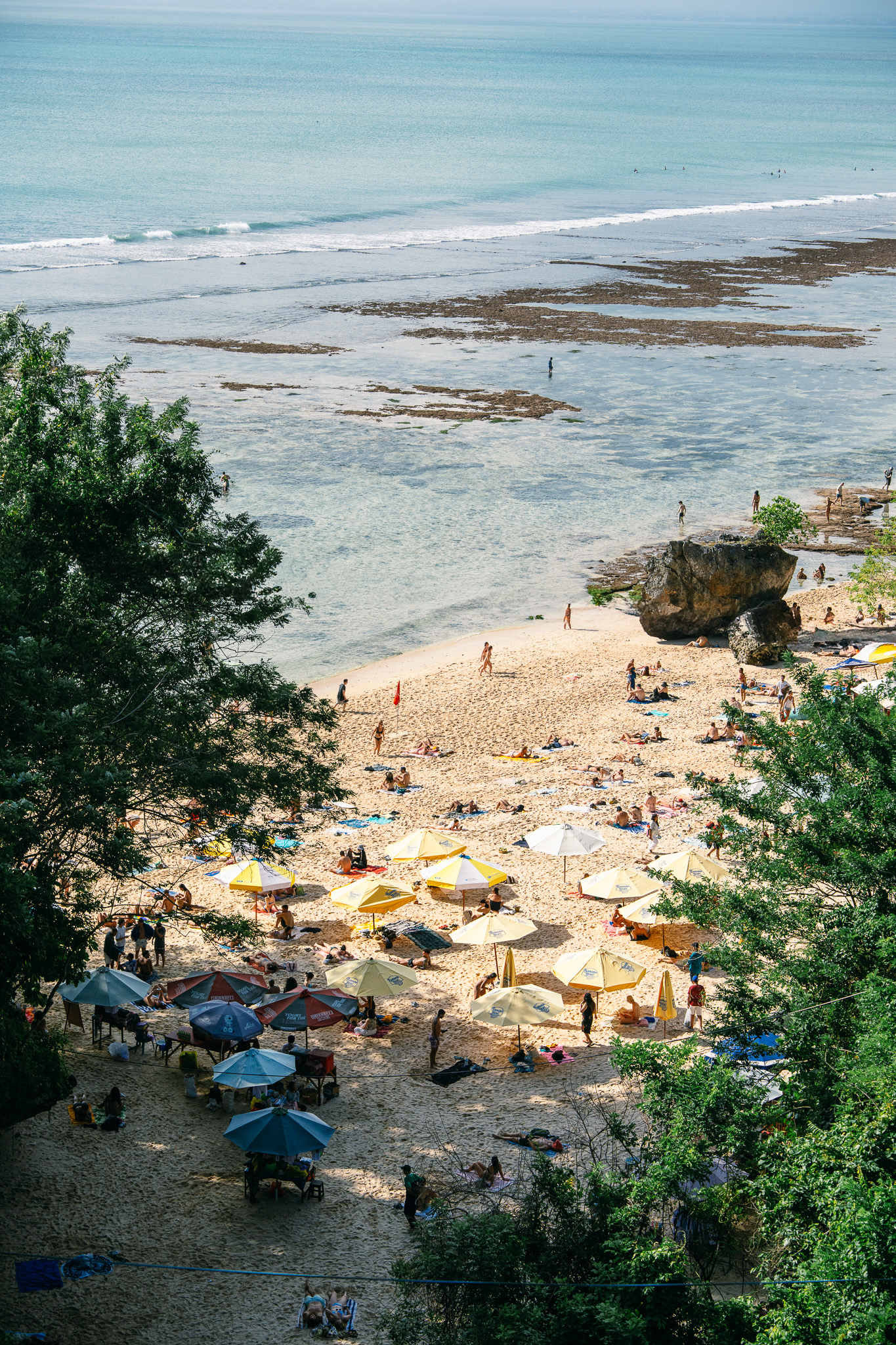Our Top Surfing Tips for Beginners
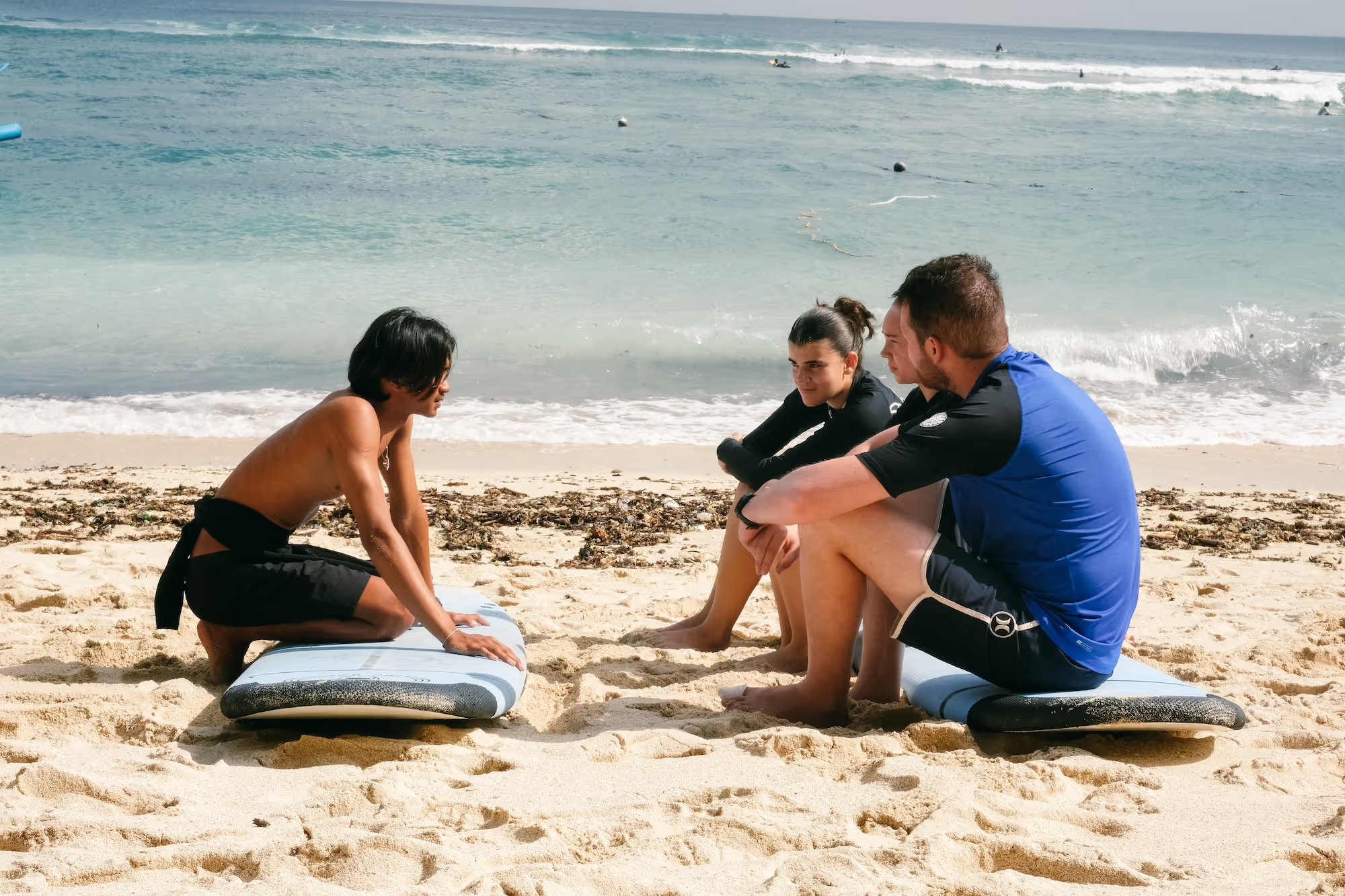
Decided to book a surf trip for the first time? Well done you.
You're about to have the time of your life. Epic waves. Cool people. Watching your friends wipeout. It's all fun.
That said, beginner surfers often approach the first few sessions with a mix of excitement and nervous anticipation.
But not to worry!
If you’ve ever wondered “how can I learn to surf?” or you’re planning your first surf trip, this guide from our surf coaches will walk you through surfing tips for beginners, practical advice and the essential mindset you’ll need to progress.
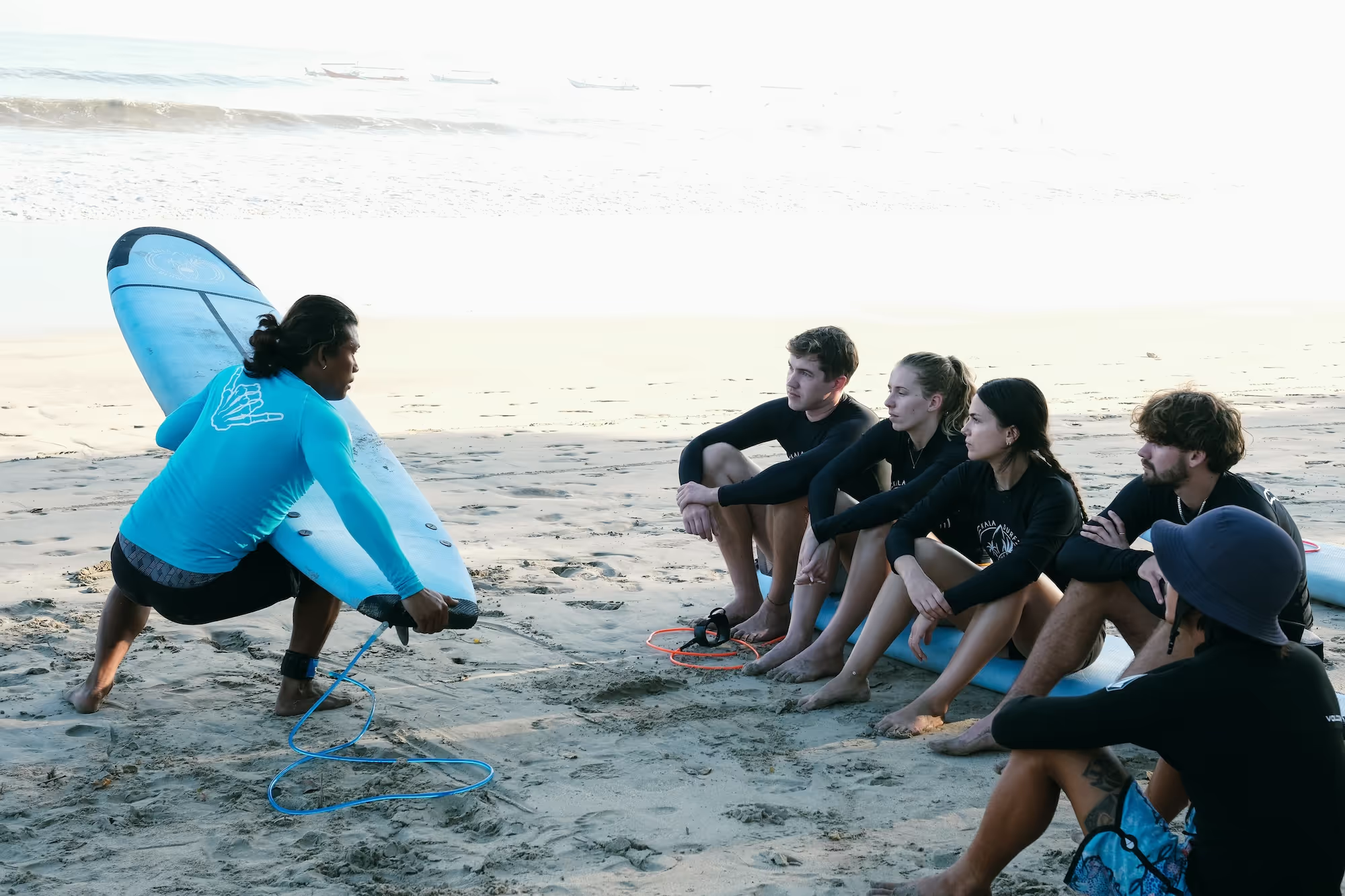
Why do surf tips matter before the first lesson?
Let's not beat around the bush.
No blog article can fully replace the value of an in-person surf lesson.
An instructor can correct your stance, guide you into the right waves and keep you safe in ways the internet simply can’t. That said, you can think of these surf tips as the soft launch of your learn-to-surf experience... your chance to get familiar with the basics before you ever touch the water.
Because the more prepared you are, the faster you’ll catch waves and enjoy the learning process once you’re out there.
Preparing for your first surf session
Before you even hit the water, it helps to have a clear picture of what’s ahead. These beginner surfing tips will set you up for success when prepping for your first surf session.
- Choose the right board – A beginner surfboard with extra volume makes it easier to paddle long distances and scoop into soft waves. Foam boards are ideal for first sessions.
- Get your surf gear ready – From surf wax to a rash guard and solid sun protection, having the right equipment keeps you safe and comfortable. A quick stop at a local surf shop will help you get what you need.
- Warm up properly – Simple stretches or a jog on the shore will wake up your muscles before paddling into oncoming waves.
- Check the surf report – Knowing the weather forecast, tides and wind conditions makes your first paddle-out more user friendly and predictable. Here's how to read a surf report (as a beginner).
Understanding surf conditions
A huge part of learning how to surf is knowing when and where to paddle out. Keep these surfer tips in mind when paddling out:
- Small waves are your friend – Start with soft waves or whitewater, then work up to your first waves. A mellow green wave, preferably.
- Know where waves break – Every surf spot is different. At reef and point breaks the wave face peels consistently, while beach breaks have shifting sandbars where breaking waves can change daily.
- Watch the line up – Before paddling out, sit on the sand and watch how other surfers position themselves. Notice how oncoming waves form and where many waves are closing out.
- Respect rip currents – Learn how to spot them and avoid paddling straight into one.
Basic surfing techniques for beginners
Every beginner asks the same question: “What are the best surfing techniques for beginners?” Here’s what to focus on:
- The prone position – Lie centered on the board, chest up, with your toes just over the back foot of the board. This helps you paddle efficiently.
- Paddling technique – Long, deep strokes give you the speed to meet oncoming waves and join the line up without getting pushed back.
- The pop-up – Place your hands flat under your chest, push with your upper body, then step your front foot forward in one smooth motion. Learn more about popping up.
- Balanced stance – Bend your knees, keep your eyes forward and shift weight slightly to your back foot when adjusting on the wave face.
Surfing etiquette for beginners
Good etiquette is just as important as good technique. Following these tips for surfing will keep you safe in the lineup:
- Respect priority – The surfer closest to the peak of the wave has the right of way. Don’t take the same wave as them.
- Wait your turn – Unwritten rules in the line up make it fair for everyone. Cutting ahead will lose respect fast.
- Hold your board – A loose board in the middle of breaking waves can injure other surfers. Always control it, even after a wipeout.
- Duck dive when needed – If a big set of oncoming waves rolls in, learn to duck dive under instead of getting pushed back to shore.
- Smile and share – Surfing is about community. A nod or smile makes the session more fun for everyone.
Tricks and tips to speed up your progress
While advanced maneuvers come later, a few smart tricks help beginner surfers improve quickly:
- Baby steps – Focus on standing, then balance, then direction. Don’t try to master all the waves in one point.
- Practice in slow motion – Work through your pop-up on the sand before taking it into the water.
- Stay relaxed – Tension leads to losing balance. A calm body adapts better to the wave face.
- Surf camps help – Booking time at surf camps, whether in Bali or somewhere else, will accelerate your surf progress. Just make sure you know what to pack before you go.
Ready to Surf in Bali? Secure Your Spot Now!
Common mistakes beginner surfers make
Even with the best surfing tips, everyone makes mistakes. Knowing them early helps you avoid bad habits:
- Looking down instead of forward when first popping up
- Standing too wide or too narrow on the board
- Relying on arms for balance instead of bending knees
- Not paddling with enough speed to catch a green wave
- Forgetting about sun’s rays and skipping sun protection during long sessions
- Not starting in waves suitable to your skill level
Surfing for the first time in Bali
If this is your first time surfing in Bali, you’re in luck! The island is one of the best beginner spots in the world thanks to:
- Consistent wave count year-round
- Beginner surf spots with sandy bottoms and forgiving take-offs
- Warm water, no wetsuit needed... just a rash guard and sunscreen
- Plenty of local surf schools and experienced instructors offering surf camps
- A fantastic range of beginner surf spot
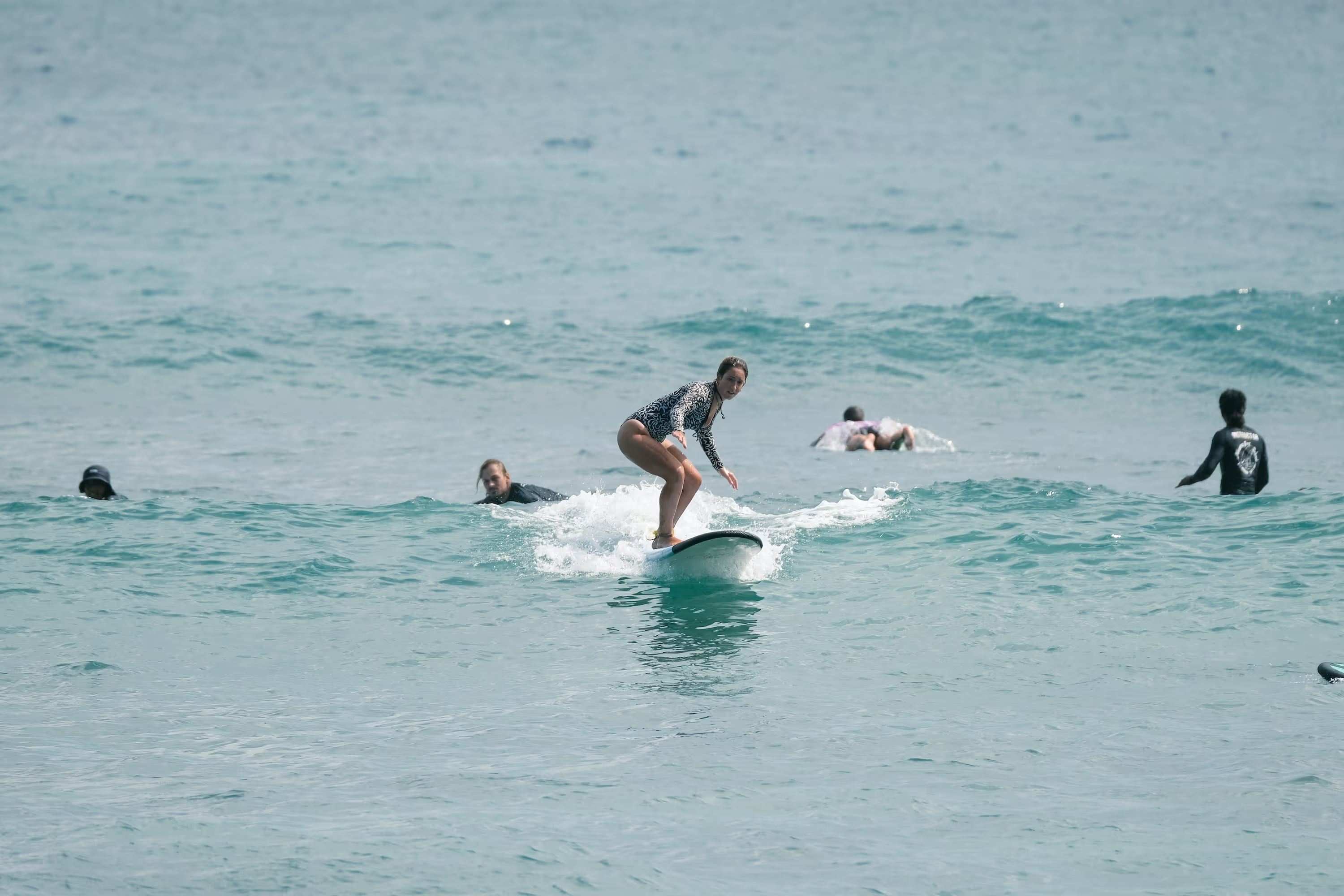
FAQ
Q. What are the best surfing tips for beginners?
Start with a beginner surfboard, practice your pop-up on land and paddle with steady, deep strokes. Always keep your eyes forward and bend your knees.
Q. How can I learn to surf quickly?
The fastest way is to book a surf lesson or join a surf camp. Pair that with practicing basic surf techniques and checking a surf report before heading out.
Q. What are the most common beginner surfing mistakes?
Looking down, skipping sun protection, paddling without speed, ignoring unwritten rules in the lineup and panicking when things start going pear shaped (totally natural, of course, but not helpful).
Q. Is Bali good for learning how to surf?
Yes! Bali is one of the best surf spots for surfing for the first time. Gentle soft waves and sandy shore breaks make it perfect for beginners. You can start surfing here and progress incredibly quickly.
Q. Can I teach myself how to surf?
You can learn a few waves on your own, but nothing beats real coaching. A lesson gives you feedback so you don’t waste time building bad habits.
Final thoughts
Learning to surf is less about perfection and more about enjoying the process. Every paddle, every wipeout, every small ride adds up.
By following these beginner surfing tips and trusting the process, you’ll build confidence and start to unlock the joy of gliding across a green wave.
But remember: while guides like this are helpful, the fastest way to progress is through real experience with a qualified surf instructor!
With the right guidance, you’ll go from catching whitewater to riding your first unbroken wave sooner than you think.
So grab your board, apply sun protection and step into the line up. Take it from us... the ocean is the best classroom there is.
More blogs you might like
FAQs
Find answers to your last-minute questions about your upcoming surf adventure with us.
Our packages include accommodation, daily surf lessons, and access to all camp facilities. We also provide surf gear for your convenience. Additional activities can be booked separately.
Travel insurance is highly recommended to cover any unexpected events. It can protect you against cancellations, medical emergencies, and lost belongings. Please check with your provider for specific coverage.
Booking is simple! Visit our Packages & Prices page to select your desired package. You can complete your reservation online or contact us for assistance.
Kala Surf Camp is located in the heart of Bali, close to the best surf spots. Our camp offers a peaceful environment while being just a short distance from vibrant local culture. You'll enjoy easy access to both surf and relaxation.
Yes, date changes can be made depending on availability. Please contact our support team as soon as possible to discuss your options. We aim to accommodate your needs whenever we can.




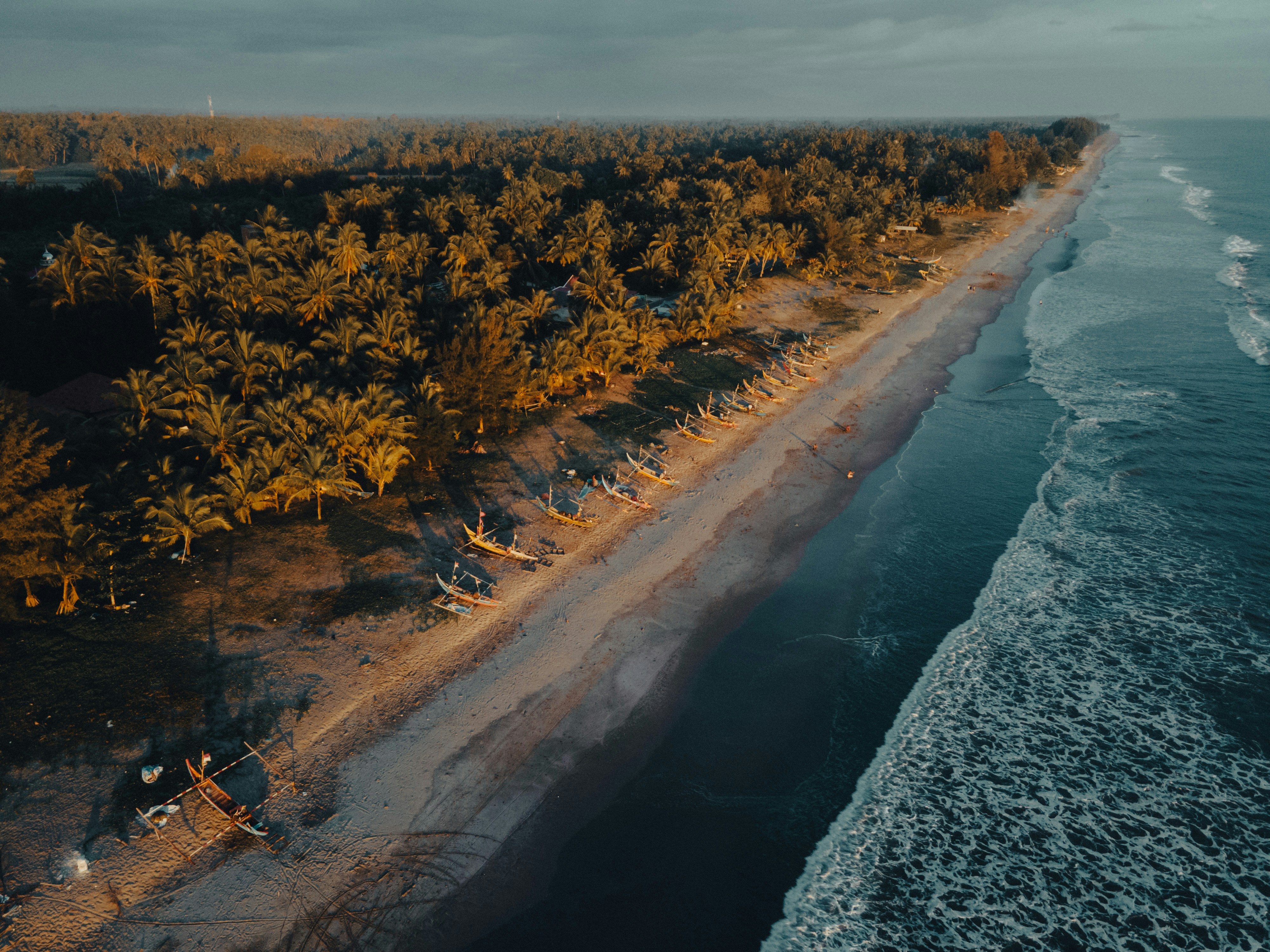
.jpg)
